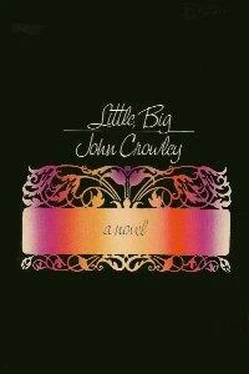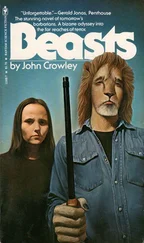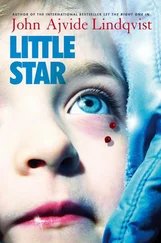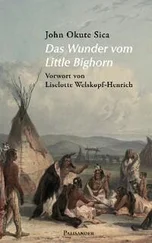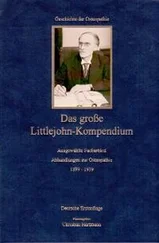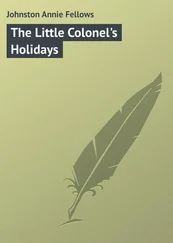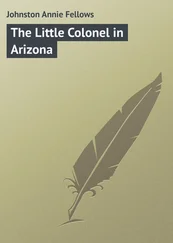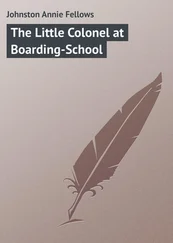“You are not welcome,” said Dr. Bramble (for it was he). “You are none of you, any more. Is that you, Fred? I shall have a lock to that gate, if people can’t have better manners.”
“I’m not Fred.”
His accent made Dr. Bramble stop to think. He raised his lamp. “Who are you then?”
“Just a traveler. I’m afraid I’ve lost my way. You don’t have a telephone.”
“Of course not.”
“I didn’t mean to barge in.”
“Mind the old orrery there. It’s all fallen, and a dreadful trap. American?”
“Yes.”
“Well, well, come in.”
The girl was gone.
Two years later, John Drinkwater was sitting sleepily in the overheated and spiritually-lit rooms of the City Theosophical Society (he never guessed that any of the ways his crossroads pointed out would lead him there, but there he was). A subscription was being raised for a course of lectures by variously enlightened persons, and among the mediums and gymnosophists who were awaiting the Society’s decision, Drinkwater found the name of Dr. Theodore Burne Bramble, to speak on the Smaller Worlds within the Large. As soon as he read the name he saw, at once and unsummoned, the girl within the apple tree, the light within her cupped hands going dim. What’s the matter? He saw her again come into the dusky dining room, unintroduced by the vicar who couldn’t bring himself to break his paragraph long enough to speak her name, only nodded and pushed aside a pile of mildewed books and sheaves of papers tied with blue tape so that there was room for her to put down (without raising her eyes to him) the tarnished tea service and cracked plate of kippers. She might have been daughter or ward or servant or prisoner—or keeper even, for Dr. Bramble’s ideas were odd and obsessive enough, though mildly expressed.
“Paracelsus is of the opinion, you see,” he said, and paused to light his pipe; Drinkwater managed to say, “The young lady is your daughter?”
Bramble shot a look behind him as though Drinkwater had seen some member of the Bramble family he didn’t know about; then he agreed, nodding, and went on: “Paracelsus, you see…”
She brought white port and ruby, unsummoned, and when that was gone Dr. Bramble was inflamed enough to speak of some of his personal sorrows, how his pulpit had been taken from him because he would speak the truth as he learned it, and how they came around now to taunt him and tie tins to his dog’s tail, poor dumb creature! She brought whiskey and brandy and at last he didn’t care and asked her her name. “Violet,” she said, not looking at him. When Dr. Bramble finally showed him to a bed, it was only because if he had not Drinkwater would have got out of earshot; as it was he had ceased to understand anything Dr. Bramble was saying. “Houses made of houses within houses made of time,” he found himself saying aloud when just before dawn he awoke from a dream of Dr. Bramble’s kindly face and with a fierce burning in his throat. When he tipped up the ewer at his bedside a discomfited spider crawled out, and he stood at the window unrelieved, pressing the cool porcelain to his cheek. He looked out at the wind-ordered islands of mist that lay between the lacy cutout trees, and watched the last fireflies extinguishing themselves. He saw her returning from the barn, shoeless and in her pale dress, with a bucket of milk in each hand that threw out drops on the ground at her every step however carefully she walked; and he understood, in a moment of knifelike clarity, how he would go about making a sort of house, a house that a year and some months later became the house Edgewood.
And here now in New York was her name before him, whom he had thought never to see again. He signed the subscription.
He knew that she would accompany her father, knew this the moment he read the name. He knew, Somehow, that she would be even more lovely and that her never-cut hair would be two years longer. He didn’t know that she would arrive three months pregnant by Fred Reynard or Oliver Hawksquill or some other not welcome at the parsonage (he never asked the name); it didn’t occur to him that she, like him, would be two years older, and have come upon hard crossroads of her own, and gone a ways down strange and shaded lanes.
“Paracelsus is of the opinion,”- Dr. Bramble told the theosophists, “that the universe is crowded with powers, spirits, who are not quite immaterial—whatever that means or meant, perhaps made of some finer, less tangible stuff than the ordinary world. They fill up the air and the water and so on; they surround us on every side, so that at our every movement” —he moved his long-fingered hand gently in the air, causing turmoil amid his pipesmoke—“we displace thousands.”
She sat by the door, just out of the light of a red-shaded lamp, bored or nervous or both; her cheek was in her palm and the lamp lit the dark down of her arms and turned it blond. Her eyes were deep and feral, and she had a single eyebrow—that is, it extended without a break across her nose, unplucked and thick. She didn’t look at him, or when she did didn’t see him.
“Nereids, dryads, sylphs, and salamanders is how Paracelsus divides them,” Dr. Bramble said. “That is to say (as we would express it) mermaids, elves, fairies, and goblins or imps. One class of spirit for each of the four elements—mermaids for the water, elves for the earth, fairies for the air, goblins for the fire. It is thus that we derive the common name for all such beings—‘elementals.’ Very regular and neat. Paracelsus had an orderly mind. It is not, however, true, based as it is on the common error—the old, the great error that underlies the whole history of our science—that there are these four elements, earth, air, fire, water, out of which the world is made. We know now of course that there are some ninety elements, and that the old four are not among them.”
There was a stirring at this among the more radical or Rosicrucian wing of the assembly, who still set great store by the Four, and Dr. Bramble, who desperately needed this appearance to be a success, gulped water from a goblet beside him, cleared his throat, and tried to march on to the more sensational or revelatory parts of his lecture. “The question is really,” he said “why, if the ‘elementals’ are not several kinds of being but only one, which I believe, why they manifest themselves in such various forms. That they do manifest themselves, ladies and gentlemen, is no longer open to doubt. ” He looked meaningfully at his daughter, and many there did also; it was her experiences, after all, that lent Dr. Bramble’s notions what weight they had. She smiled, faintly, and seemed to contract beneath their gaze. “Now,” he said. “Collating the various experiences, both those told of in myth and fable and those more recent ones verifiable by investigation, we find that these elementals, while separable into two basic characters , can be any of several different sizes and (as we might put it) densities.
“The two distinct characters—the ethereal, beautiful, and elevated character on the one hand, and the impish, earthy, gnomelike character on the other, is in fact a sexual distinction. The sexes among these beings are much more distinct than among men.
“The differences observed in size is another matter. What are the differences? In their sylphlike or pixie manifestation they appear no bigger than a large insect, or a hummingbird; they are said to inhabit the woods, they are associated with flowers. Droll tales are spun of their spears of locust-thorns and their chariots made of nutshells drawn by dragonflies, and so on. In other instances, they appear to be a foot to three feet in height, wingless, fully-formed little men and women of more human habits. And there are fairy maidens who capture the hearts of, and can apparently lie with, humans, and who are the size of human maidens. And there are fairy warriors on great steeds, banshees and pookahs and ogres who are huge, larger by far than men.
Читать дальше
